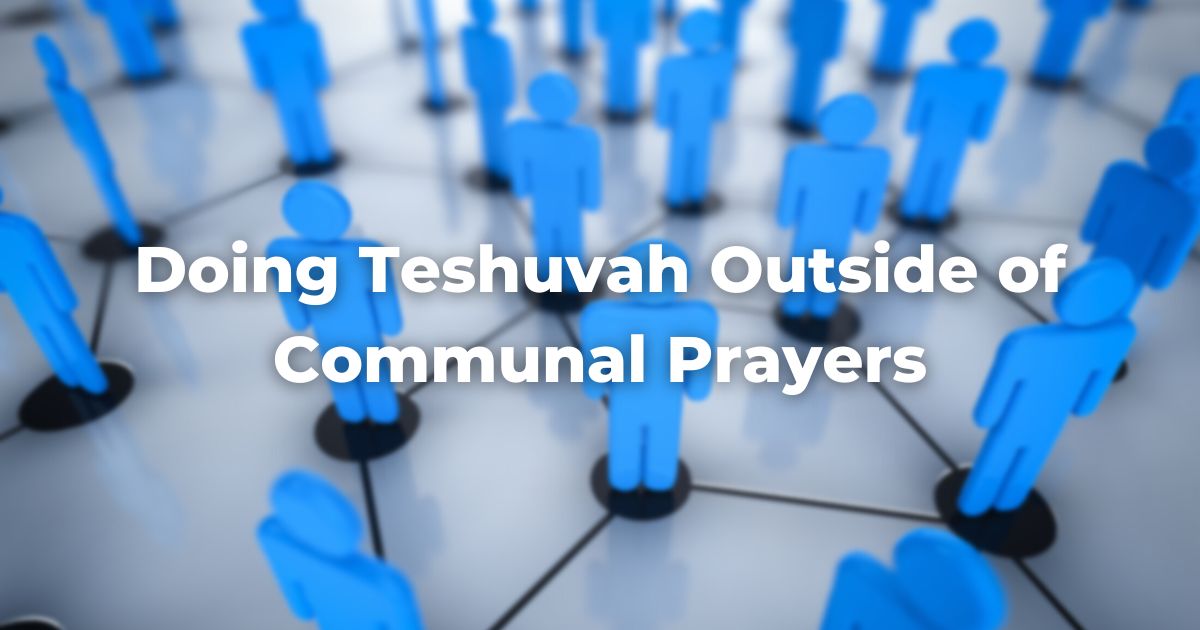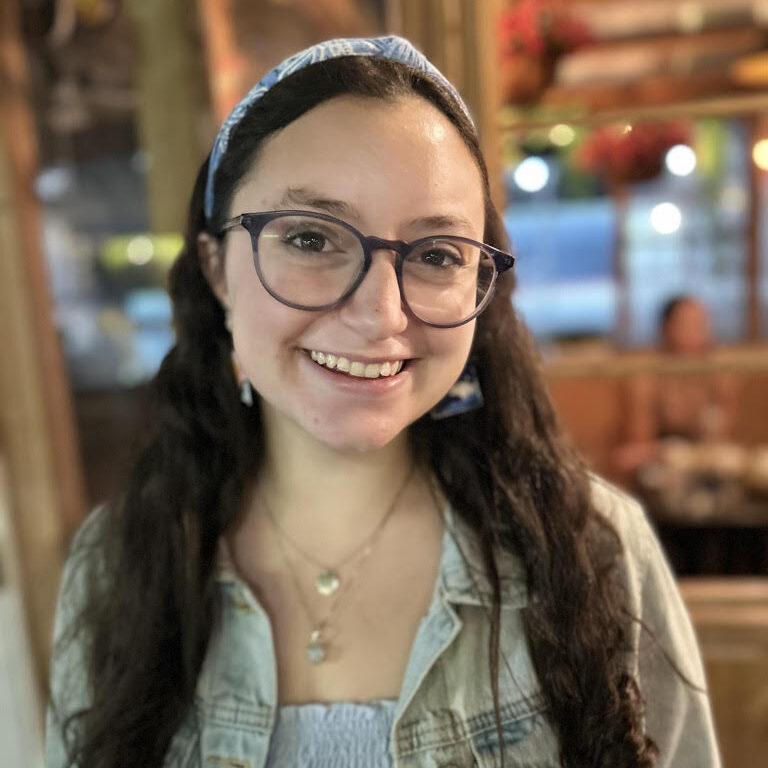What does it mean to do teshuvah, repentance, as a community outside of the context of prayer?
This question first came up to the CJLS in the context of the Covid Pandemic when many communities and individuals would not be able to gather for prayer. The response is an invitation to think through teshuvah on the whole.
The teshuvah (rabbinic legal opinion) begins:
“Our communal davenning on Yom Kippur includes liturgy designed to inspire teshuvah (repentance and a return to spiritual wholeness) and aid us in retrospection, contrition, and self-improvement, but this year 5781/2020 our communal davenning will be curtailed as the 2020 pandemic continues. How do we do teshuvah when our usual ways of doing so in community are less available or unavailable?”
This was adapted from Rabbi Pamela Barmash and Rabbi Amy Levin’s teshuvah, “Teshuvah Outside of Communal Prayer.” If you’d like to read the full teshuvah, you can find it here.
What are our motivations for teshuvah?
There are many motivations for engaging in teshuvah, one or several of which each of us as individuals may find compelling:
- We are internally motivated for self-improvement.
- Teshuvah expresses our love for God and how we wish to incorporate God into the daily routines of life. As part of the covenanted community, we are reminded daily that self-examination is one of God’s expectations of us.
- As part of the covenanted community, we are reminded daily that self-examination is one of God’s expectations of us.
- We want to love other human beings and be loved in return, which motivates us to improve our relationships and behavior.
- Our missteps bother us. Perhaps they even impede our relationships and personal and professional success, and we want to overcome them.
- The Days of Awe are a time to be reflective and look inward.
“Maimonides emphasizes how much teshuvah is a personal process in which we examine and verbally acknowledge our missteps. An essential part of the process is viddu’i or confession of sins, and the rabbis of the TalmudReferring to one of two collections, the Jerusalem and Babylonian Talmuds, edited in the 6th century, that contains hundreds of years of commentary, discussion, and exploration of the ideas in the Mishnah. One could describe it as Mishnah + Gemara = Talmud Read more, mindful of the need for spontaneity in prayer, at first did not formulate a fixed confession.” (Mishneh TorahRefers to the first five books of the Hebrew Bible, the Tanakh, also called the Five Books of Moses, Pentateuch or the Hebrew equivalent, Humash. This is also called the Written Torah. The term may also refer to teachings that expound on Jewish tradition. Read more, Repentance 1:1)
Teshuvah during the Days of Awe is part of a larger three part process of:
Teshuvah: a perpetual seeking to return to our root commitments
Tefillah: daily engagement with the core values of our tradition as reflected in our liturgy
Tzedakah: the pursuit and execution of actions that will better the lives of those around us
None of these, even teshuvah, are solitary pursuits: We “… recite the confessional prayer (vidui) in the plural, not the singular. … for without a minyan our prayer is diminished.” However, “doing them in community is curtailed … challenged by the realities of the Covid-19 pandemic. As urgently as our tradition pushes us to engage in community, this virus just as urgently pushes many of us into solitude, and we must pursue teshuvah on our own.”
Suggestions on how to fulfill the mitzvah of teshuvah:
- Engaging in the liturgy and prayer, such as
- Avinu Malkeinu (Mahzor Lev Shalem, pages 92-94)
- Ashamnu Bagadnu (Mahzor Lev Shalem, page 235)
- Making things right with those whom we have hurt or offended
- Finding time for a spiritual check-up with a Rabbi or teacher
- Suggestions for good books and tools for self-study and self-examination
- Noah BenShea, Jacob’s Ladder: Wisdom for the Heart’s Ascent
- Rabbi Dov Peretz Elkins, Forty Days of Transformation: Daily Reflections of Teshuvah (Repentance) for Spiritual Growth From Rosh Hodesh Elul to Yom Kippur
- Rabbi Alan Lew, This Is Real and You Are Completely Unprepared: The Days of Awe as a Journey of Transformation
- Rabbi Kerry Olitzky and Rabbi Rachel Sabath, Preparing Your Heart for the High Holy Days: A Guided Journal
- See also: Rabbi Danya Ruttenburg, On Repentance and Repair: Making Amends in an Unapologetic World
Conclusion
“The exigencies of the 2020 COVID-19 pandemic in no way relieve us of our obligation to pursue teshuvah, a path of return and response to our own shortcomings as people bound by the covenant between God and Israel. As many of us around the world anticipate engaging in the coming Days of Awe without our normative setting of communal prayer, we must each fulfill this mitzvah with integrity and creativity and make the process, as it ultimately is, our own.”
Note: As stated above, this teshuvah was written during the height of the Covid pandemic. However, the concept can be applied to other situations. This can include times when someone is sick or hospitalized, someone lives in a place without a synagogue, and any time in which communal teshuvah is not possible. These alternative practices can also be used in addition to traditional teshuvah, at times when communal teshuvah is possible.
Author
-

Reena Bromberg Gaber is a student in the Joint Program with Columbia University and the Jewish Theological Seminary. At school, she is involved with Columbia/Barnard Hillel, Gamma Phi Beta, the Columbia Daily Spectator, and Artists Reaching Out. Growing up, Reena was involved with the Conservative movement, including many summers as a camper and staff member at Camp Ramah in the Poconos and in local, regional, and international leadership positions in USY. As Reena moves through college and into adulthood, she is excited to find a space for herself and her peers in the Conservative movement.
View all posts






